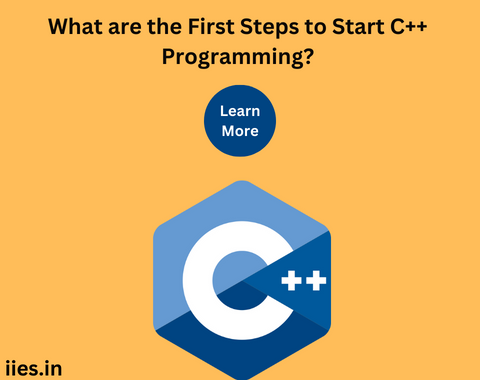
Aspiring programmers often find themselves drawn to the powerful and versatile C++ language, known for its efficiency and wide range of applications. In this article, we will explore the theoretical foundations of C++ programming, providing a comprehensive guide for beginners looking to dive into the world of C++.
C++ is a general-purpose programming language that builds upon the foundation of the C language while introducing object-oriented programming features. Before delving into the intricacies of C++, it is crucial to grasp the fundamental concepts shared with its predecessor, C. Key concepts include variables, data types, operators, control structures (such as loops and conditionals), and functions.
One of the distinguishing features of C++ is its support for object-oriented programming (OOP). In OOP, programs are structured around objects, which encapsulate data and the operations that can be performed on that data. Understanding the four pillars of OOP—encapsulation, inheritance, polymorphism, and abstraction—is essential for harnessing the full power of C++.
3. Variables and Data Types:
Variables are containers for storing data in a program. In C++, variables must be declared with a specific data type, such as int (integer), double (floating-point number), char (character), and more. Understanding data types is crucial for efficient memory allocation and manipulation of data.
4. Control Structures:
Control structures dictate the flow of a program. C++ supports various control structures, including if statements, switch statements, while loops, do-while loops, and for loops. Mastery of these structures enables programmers to control the execution of their code and make decisions based on conditions.
5. Functions:
They help in organizing code, promoting reusability, and enhancing the readability of programs. Understanding function declarations, parameters, return types, and the concept of scope is essential for effective C++ programming.
6. Pointers and References:
Pointers and references are powerful features in C++ that allow for efficient manipulation of memory addresses. Pointers store memory addresses, while references provide an alternative syntax for working with variables. Understanding these concepts is crucial for tasks such as dynamic memory allocation and efficient function parameter passing.
7. Classes and Objects:
C++ introduces classes and objects, which are fundamental to the object-oriented paradigm. A class is a blueprint for creating objects, encapsulating data and functions that operate on that data. Objects are instances of classes, and understanding how to create and use them is fundamental to C++ programming.
8. Inheritance and Polymorphism:
This promotes code reuse and enhances the organization of code. Polymorphism, on the other hand, enables objects of different types to be treated as objects of a common base type, allowing for flexibility in program design. Mastering these concepts enhances the versatility and maintainability of C++ code.
9. File Handling:
C++ provides facilities for file handling, allowing programs to read from and write to files. Understanding how to open, close, read, and write to files is essential for dealing with external data storage and retrieval.
10. Templates:
They allow for the creation of functions and classes that operate on generic types, promoting code reuse and flexibility. Understanding how to use and create templates is valuable for writing efficient and generic code.
The Standard Template Library (STL) is a powerful collection of template classes and functions in C++ that provides general-purpose classes and algorithms with templates. The STL includes containers (like vectors, lists, and maps), algorithms (such as sorting and searching), and iterators for efficient manipulation of data structures. Understanding how to leverage the STL can significantly enhance the productivity and readability of your C++ code.
Exception Handling:
Exception handling is a crucial aspect of writing robust and reliable C++ programs. It allows programmers to handle unexpected situations gracefully, preventing crashes and improving the overall stability of the software. Concepts like try, catch, throw, and exception classes are fundamental to mastering exception handling in C++.
Memory Management:
C++ gives programmers control over memory management, but with great power comes great responsibility. Understanding concepts like dynamic memory allocation (new and delete operators), memory leaks, and smart pointers is essential for writing efficient and error-free programs. Effective memory management is critical for avoiding performance issues and ensuring the stability of your applications.
Namespaces:
Namespaces in C++ provide a way to organize code and avoid naming conflicts. They help in creating modular and maintainable codebases by grouping related functionality together. Understanding how to declare, define, and use namespaces is essential, especially as your programs grow in complexity.
Preprocessor Directives:
The C++ preprocessor is responsible for handling directives before the actual compilation of code. Preprocessor directives start with a hash symbol (#) and include tasks like file inclusion, macro definition, and conditional compilation. Knowledge of preprocessor directives is crucial for managing code structure, enabling conditional compilation, and creating reusable code through macros.
C++ Standards and Updates:
C++ is a language that evolves, with new standards and updates introduced periodically. It’s important for C++ programmers to stay informed about the latest features and improvements. Familiarity with C++ standards, such as C++11, C++14, C++17, and beyond, ensures that you’re utilizing the most modern and efficient language features available.
Debugging Techniques:
Learning effective debugging techniques is an essential skill for any programmer. Familiarize yourself with debugging tools, techniques, and practices in C++ to identify and resolve issues in your code efficiently. Proficient debugging skills are invaluable for troubleshooting and maintaining large codebases.
In conclusion, starting with C++ programming involves mastering the theoretical foundations that form the basis of this powerful language. From the basics of variables and control structures to the intricacies of object-oriented programming, pointers, and templates, a solid understanding of these concepts lays the groundwork for becoming a proficient C++ programmer. As you embark on your C++ journey, remember that practice is key—apply theoretical knowledge through hands-on coding to reinforce your understanding and build practical skills. Happy coding!
Indian Institute of Embedded Systems – IIES